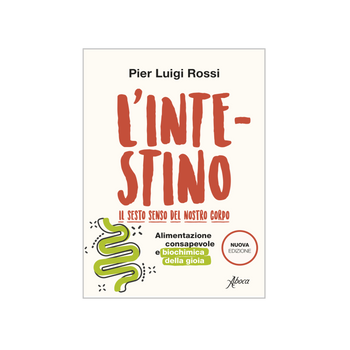"Blaser's gift is to write clearly and to take the reader on a fascinating journey through the paradoxes and insights about the teeming world within us."
Abraham Verghese, MD, author of Cutting for Stone
"Why is it that you are fat, your son has asthma, and your thirteen-year-old daughter is six feet tall? Dr. Blaser says your bodies are missing vital, beneficial bacteria and I guarantee that after reading this book you will agree. Take a pass on the antibiotics and read Missing Microbes."
Laurie Garrett, Pulitzer-prize winning writer and senior fellow for Global Health at the Council on Foreign Relations
"Missing Microbes is science writing at its very best - crisply argued and beautifully written, with stunning insights about the human microbiome and workable solutions to an urgent global crisis."
David M. Oshinsky, author of the Pulitzer-prize winning Polio: an American Story
In Che fine hanno fatto i nostri microbi?, Dr. Martin Blaser reaches back to the discovery of antibiotics, which ushered in a golden age of medicine, and then traces how our subsequent overuse of these seeming wonder drugs has left its mark on our systems, contributing to the rise of what Blaser calls our modern plagues: obesity, asthma, allergies, diabetes, and certain forms of cancer. Blaser's studies suggest antibiotic use during early childhood poses the greatest risk to long-term health.
Blaser provides elegant support for his theory, and he guides us to what we can do to avoid even more catastrophic health problems in the future.
Martin J. Blaser, MD, has studied the role of bacteria in human disease for more than thirty years. He is the director of the Human Microbiome Program at NYU, served as the chair of medicine advisory roles at the National Institutes of Health. He cofounded the Bellevue Literary Review and his work has been written about in publications that include "The New Yorker", "Nature, "The New York Times", "The Economist", "The Washington Post" and "The Wall Street Journal". His more than one hundred media appearances include The Today Show, Good Morning America, NPR, the BBC, The O'Reilly Factor and CNN. He lives in New York City.
"Blaser's gift is to write clearly and to take the reader on a fascinating journey through the paradoxes and insights about the teeming world within us."
Abraham Verghese, MD, author of Cutting for Stone
"Why is it that you are fat, your son has asthma, and your thirteen-year-old daughter is six feet tall? Dr. Blaser says your bodies are missing vital, beneficial bacteria and I guarantee that after reading this book you will agree. Take a pass on the antibiotics and read Missing Microbes."
Laurie Garrett, Pulitzer-prize winning writer and senior fellow for Global Health at the Council on Foreign Relations
"Missing Microbes is science writing at its very best - crisply argued and beautifully written, with stunning insights about the human microbiome and workable solutions to an urgent global crisis."
David M. Oshinsky, author of the Pulitzer-prize winning Polio: an American Story
In Che fine hanno fatto i nostri microbi?, Dr. Martin Blaser reaches back to the discovery of antibiotics, which ushered in a golden age of medicine, and then traces how our subsequent overuse of these seeming wonder drugs has left its mark on our systems, contributing to the rise of what Blaser calls our modern plagues: obesity, asthma, allergies, diabetes, and certain forms of cancer. Blaser's studies suggest antibiotic use during early childhood poses the greatest risk to long-term health.
Blaser provides elegant support for his theory, and he guides us to what we can do to avoid even more catastrophic health problems in the future.
Martin J. Blaser, MD, has studied the role of bacteria in human disease for more than thirty years. He is the director of the Human Microbiome Program at NYU, served as the chair of medicine advisory roles at the National Institutes of Health. He cofounded the Bellevue Literary Review and his work has been written about in publications that include "The New Yorker", "Nature, "The New York Times", "The Economist", "The Washington Post" and "The Wall Street Journal". His more than one hundred media appearances include The Today Show, Good Morning America, NPR, the BBC, The O'Reilly Factor and CNN. He lives in New York City.












